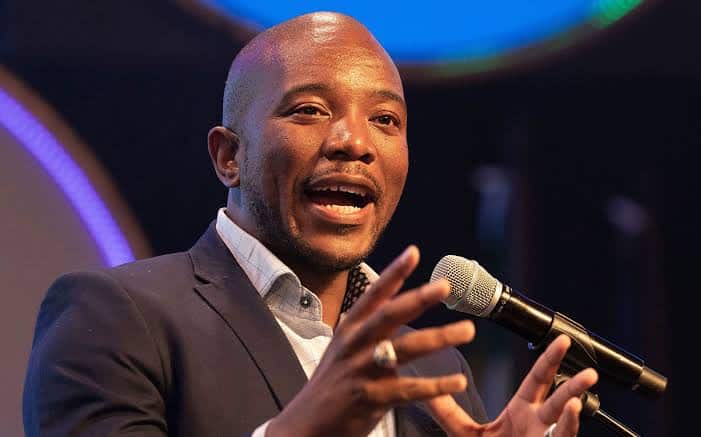BOSA Proposes Gambling Tax Alternatives to VAT Hike

- Build One SA (BOSA) is advocating for more taxation on online gambling and sports betting to help alleviate the impact of a proposed VAT increase in South Africa.
- iGaming consultant Cameron Green criticizes BOSA’s suggestion to implement a Kenyan-style gaming tax regime in South Africa.
- There is a call to streamline regulations and improve enforcement against illegal operators to create a more sustainable fiscal environment.
Build One SA (BOSA) has spotlighted the potential of online gambling and sports betting as alternative revenue sources in the ongoing discussions surrounding South Africa’s budget impasse. During a recent meeting with the African National Congress (ANC), BOSA leader Mmusi Maimane articulated a vision for alleviating the proposed 0.5-percentage-point increase in Value Added Tax (VAT) through innovative tax reforms in the gambling sector.
“We’re really focused on how we can grow the economy [and] invest more in productive assets. We looked at the best ways to increase revenue by amending legislation that would make online gambling and sports betting a sin tax that would accrue more revenue,” Maimane stated, emphasizing the economic potential of these previously underutilized sectors.
Maimane’s proposals come at a crucial time, as the ANC seeks to build consensus and resolve the budgetary challenges currently confronting the government of national unity. The discussions focused on not only the constitutional obligation to generate adequate revenue but also the societal implications of imposing such taxes. “We all agree that VAT is not a way forward, and so, we are looking at legal processes as to how that can be reversed,” he noted, indicating a collective desire to identify sustainable revenue alternatives.
As the private sector has been increasingly turning to online platforms for gambling and betting activities, BOSA posits that taxing these activities as ‘sin taxes’ could provide a significant revenue stream for the state. This aligns with global trends where jurisdictions are looking to capitalize on gambling revenues while simultaneously regulating these industries to prevent social issues.
Read Also: Aluwani Mukhudwana on Compliance as a Recipe for Growth in the South African Gaming Market
Maimane also touched upon potential expenditure cuts, suggesting that focusing on reducing foreign emissions and rationalizing state-owned entities could create a more manageable fiscal landscape. “Ultimately, how do we fund [SARS] and the [National Prosecuting Authority], or SARS to be able to collect better revenue for the NPA to be able to fight corruption?” he asked, illustrating the interconnectedness of revenue generation and good governance.
Amid these discussions, ANC spokesperson Mahlengi Bhengu-Motsiri acknowledged the urgency of addressing fiscal challenges while ensuring that vulnerable societal sectors remain protected. “A key focus of the discussions was the need to find viable alternatives to proposed tax increases, particularly the VAT hike, while securing revenue streams that will sustain economic growth and protect essential services,” she commented, underscoring the responsibility of the government to seek inclusive fiscal policies.
Why BOSA’s Push for a Kenyan-Style Gaming Tax in South Africa Doesn’t Stack Up
Cameron Green, an iGaming consultant at F9 Media Group, spoke exclusively to iGaming AFRIKA, articulating that “with public finances under pressure, it’s no surprise politicians are looking for fresh ways to plug the fiscal hole.” However, he emphasized that BOSA’s proposal to adopt a Kenyan-style tax regime for South Africa’s gaming sector “misses the mark—not just politically, but economically.”
Green pointed out that Kenya’s model, which features aggressive tax rates including 15% on gross gaming revenue, 30% corporate tax, and a 20% withholding tax on player winnings, was a response to an informal, youth-focused market with little regulatory oversight. He remarked, “Forcing a centralised, top-down model onto this decentralised system is like trying to retrofit a hatchback with a jet engine—it’s messy, overpowered, and likely to stall.”
He further warned that “over-taxation in gaming doesn’t just impact operators; it hits the wider economy through reduced investment, job losses in affiliated industries (tech, marketing, customer service), and lower player retention.” Green provided a cautionary tale using Kenya’s own experience: “Following the tax hikes, several operators exited the market, advertising was slashed, and black market play surged. The net effect? A smaller, less transparent industry.”
Green noted the paradox within BOSA’s proposal: “Ironically, BOSA’s proposal would hit the very operators who play by the rules the hardest. Larger, licensed operators—who already pay corporate tax, VAT, and provincial levies—would face double or triple taxation.” This approach, he warns, could push compliant players into unregulated alternatives, negating the intended tax benefits.
Concluding his assessment, Green stated that framing gaming as a quick fix for revenue shortfalls is a “dangerously simplistic” viewpoint. “Banking on it to solve structural fiscal challenges is like betting the house on a hot streak—it might work for a while, but it’s not a sustainable strategy.”
Instead of adopting such tax models, Green suggests that South Africa should focus on measures like “streamlining the regulatory framework across provinces to ensure consistency,” “improving enforcement against unlicensed operators,” and “modernising data tracking and reporting to get a clearer view of the industry’s true size and shape.”























